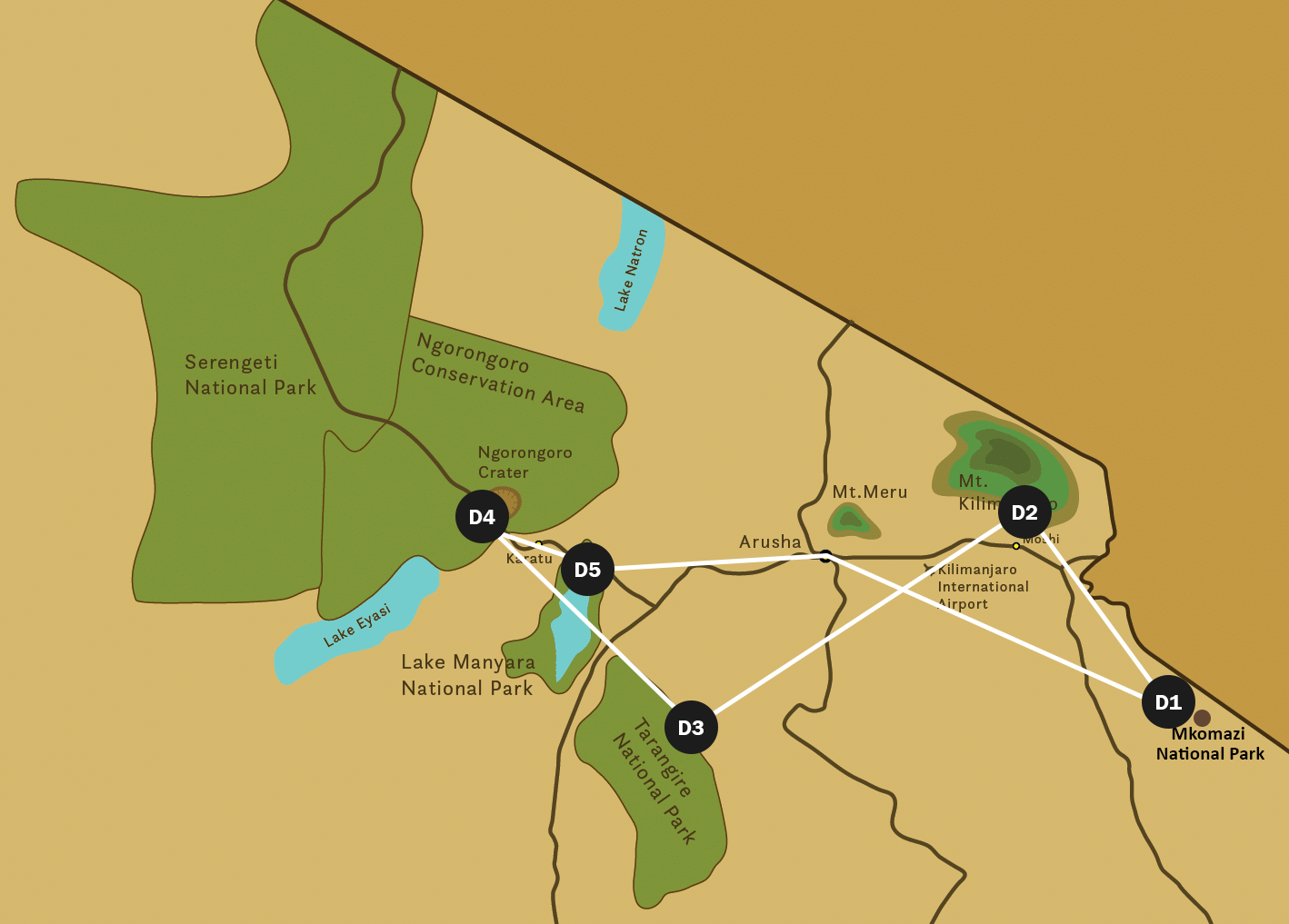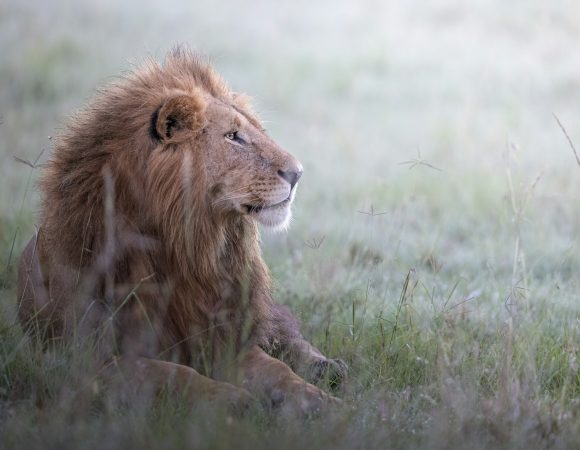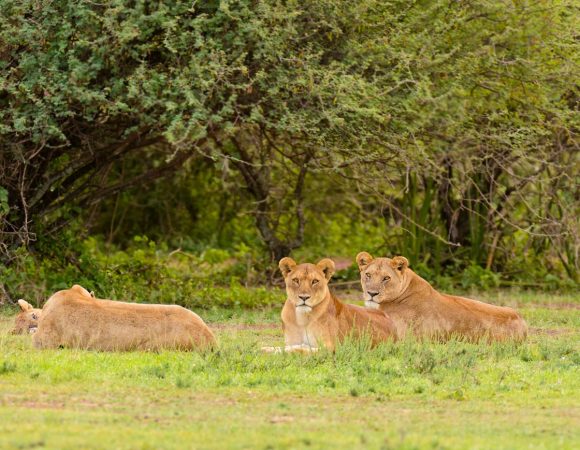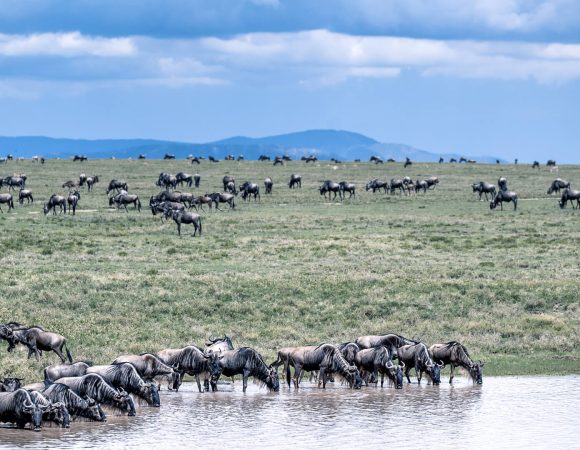5 Day Tanzania Private Lodge Safari
Tour overview
In five days Tanzania Private Safari, you will visit all the major safari national parks in the north of Tanzania. You will have plenty of time for extensive animal watching and the opportunity to take many great photos. You are at the center of attention and you are invited to shape with us the daily schedule of your safari.
Tour Type
Duration
Tour Location
Airport Pickup
- Kilimanjaro Int. Airport (KIA)
Tour Highlights
Places You'll Visit
- Mkomazi National Park
- Materuni Village
- Tarangire National Park
- Ngorongoro Crater
- Lake Manyara National Park
Tour Day By day Itinerary
Kisambi Tours' representative will welcome you at Kilimanjaro International Airport (JRO) and accompany you to your accommodations for the night. Our guides are well connected with the country, so you'll be in good hands from the minute you arrive until you leave.
After breakfast, you will head to Mkomazi National Park. With Mount Kilimanjaro to the northwest and to the south, the Pare and Usambara Mountains and to the north Kenya’s vast Tsavo National Park make common ground for migratory herds of elephant, oryx and zebra during the wet season. Together with Tsavo, it forms one of the largest and most important protected ecosystems on earth. Mkomazi National Park stands out from all other national parks as it has a black rhinoceros sanctuary and also a captive-breeding program for the African wild dog. Seeing these two unique endangered species is a once-in-a-million adventure together with other species such as giraffe, eland, hartebeest, zebra, buffalo, elephant and the long-necked gerenuk. Bird spotting is excellent with more than 450 avian species recorded including endemics such as the cobalt-chested vulturine guinea-fowl and other large ground birds such as ostrich, kori bustard, secretary bird and ground hornbill.
- You will spend the night at Materuni Homes
- Meal Plan: Lunch & Dinner
Materuni is next on your list and upon arrival, you will visit the waterfalls, which are around 40 minute's walk away. On the way, your guide will inform you about the culture of the Chagga, their village life and explain the surrounding fauna and flora. The views are truly breathtaking, and with some luck, you will see the summit of Kilimanjaro. When you reach the waterfalls, you will see that they are more than 80 meters high. The pool at the bottom of the waterfall is an inviting place for a refreshing swim so don‘t forget your swimwear! After the tour, we will experience a traditional Chagga lunch, taste our local banana beer and experience the coffee experience. Before you say goodbye, you can savour coffee and appreciate the views of the surrounding rainforest.
- You will spend the night at Materuni Homes
- Meal Plan: Lunch & Dinner
Giant baobab trees, bush savannah and the seasonal marshes add to the wonder of this nature reserve. The park is considered one of the best places to view elephants up close. The park is also home to buffaloes, zebras and wildebeests which are always closely followed by a range of predators such as lions. Leopards are seen now and then but cheetahs are rarely spotted. From the open roof of the safari vehicle, you will be able to absorb the landscape and watch the animals. In the late afternoon, you will leave the park and drive to the lodge, where you will overnight at Fanaka Lodge.
- Meal Plan: Breakfast, Lunch & Dinner
Rise and shine! After breakfast at daybreak, you'll travel back to the Ngorongoro Conservation Area before you drive down into the crater. The massive collapsed volcano is home to over 25,000 mammals ranging from the Big Five—lion, elephant, buffalo, rhino and leopard—to spotted hyenas, rare wild dogs and some of the more than 500 bird species of the area. After an extensive game drive and a picnic for lunch, you will leave the caldera in the afternoon. Head to the lodge for dinner and your overnight stay.
- Overnight at Eileen's Trees Inn
- Meal Plan: Breakfast, Lunch & Dinner
Lake Manyara National Park is dominated by the lake of the same name, which attracts large colonies of water birds. Particularly impressive are the pink-coloured flamingos, but also many other bird species such as cormorants, pelicans or storks can be observed here. A total of about 400 different bird species live in the park. The park is also famous for its tree-climbing lions, which are usually found in the central and open parts of the park. During the safari, you will also see elephants, zebras, giraffes, buffaloes, hippos and many other animal species. In the late afternoon, you leave the national park and head to Arusha/JRO.
- Meal Plan: Breakfast & Lunch
Includes
- Airport Pickup and Drop – Off
- Transportation in a 4×4 safari vehicle
- Unlimited mileage game drive
- Professional, English-speaking guide
- Meals according to the itinerary
- Mineral water on all days
- All mentioned activities
- All park entrance fees
- All government taxes
- Overnight accommodation according to the itinerary
Excludes
- Flights
- Alcohol and soft drinks
- Tips for crew
- Optional activities
- Visa fees
- Travel insurance
- Laundry Services
- Personal spending money for souvenirs
Gallery
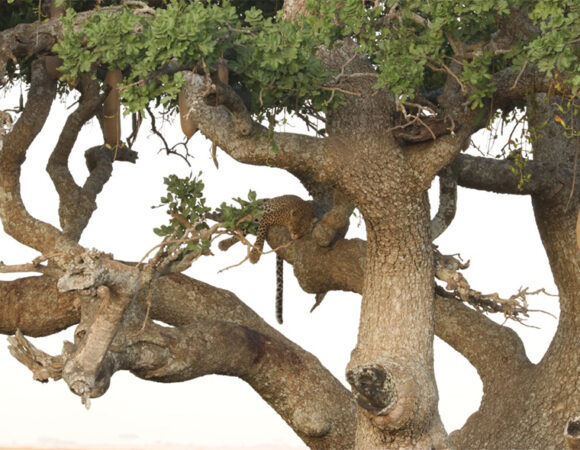

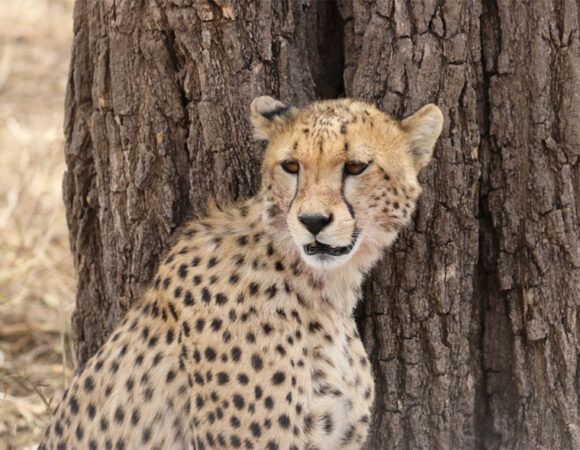
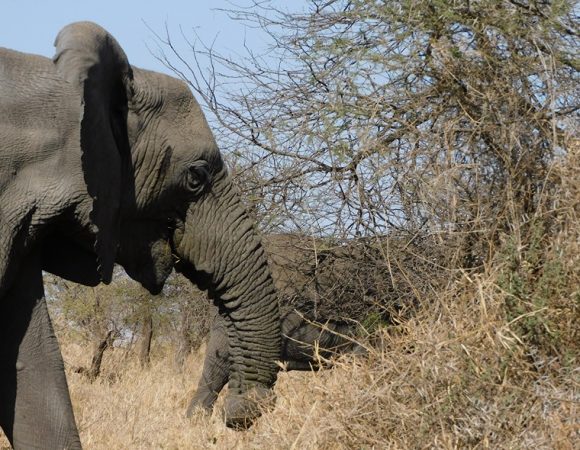
SAFARI FAQ'S
You can book your safari with utmost ease with Kisambi Tours. What we suggest you initially do is plan the various Things to Do in Tanzania and the locations you wish to visit in the country. Give us a call and we will assist you in preparing the best-customized itinerary for Tanzania as per your needs. You need to make a 30% payment to save your bookings and make the complete payment before 120 days of your safari date. After this, you need to book your international flight tickets at least 6-9 months before your safari schedule dates. After this, you need to start applying for your Tanzania Visa on the Tanzania Embassy websites or visit their offices in your country. This is followed by buying your travel insurance and takes the necessary vaccinations before your travel.
We truly believe that you can have a fantastic Tanzania safari at any time of year! Many of our guests book with us throughout the "long rains" of April and May, as well as the "short rains" of November. We make every effort to provide them with the greatest possible experience, even during the rainy season. The brief wet seasons are ideal for arranging a Tanzania Safari for bird watchers. The migratory birds can be seen during a rainstorm. However, the dry season is the best time to visit Tanzania.
Tanzania is a prime safari destination, boasting abundant wildlife and diverse landscapes. Popular attractions include:
Northern Circuit: Serengeti and Ngorongoro Crater
Southern Circuit: Nyerere National Park and Ruaha National Park
Western Circuit: Katavi National Park
Additionally, Tanzania is home to Africa's tallest peak, Mount Kilimanjaro, which is primarily accessed from Tanzania despite being near the Kenya border.
The cost of a Tanzania Safari is influenced by various factors like activities chosen, accommodation type, trip duration, season, and group size. Consider budgeting starting from $500 per person daily as a general guide. Prices can also fluctuate based on the season: you might save during the rainy season but expect higher costs during prime wildebeest migration times. Camping safaris are often more affordable than luxury lodge safaris. Places like the Serengeti offer larger hotels that might be more budget-friendly.
Tanzania is a country where you can time travel and get lost in the transcendental form of nature and wildlife that the country has to offer. There is a huge diversity of Tanzania Population and Tanzania Religion with the more dominating being Islam and its culture. What you will be surprised with is the amazing Tanzania Safari Facts and insights about the Tanzania Time of the past when the country witness colonial rule and anarchy. You must have come across numerous Tanzania Safari Videos that give you a clear insight into how the country is and its beauty. It is worth visiting Tanzania and understanding its glorious traditions and culture. All you need is a visa and a backpack.
Tanzania is relatively safe but not without risks. Tourists may encounter touts and petty thefts. Safeguard your valuables, avoid isolated areas, and use only reputable transport. Always carry your passport and monetary essentials with you.
The best times to witness Tanzania's wildebeest migration are June-July in the Serengeti and January-February for calving near Lake Ndutu in the Ngorongoro Conservation Area.
Based on your package choice, accommodation ranges from lodges to tented camps during a Tanzania safari.
Words from Our happy Clients
We have received feedback from our clients, and Kisambi Tours is rated 5/5 by them. Customers grant us this honor because we are constantly committed to doing whatever it takes to ensure that their safari is completely satisfactory.
Verified Best experience ever: Mount Kili My experience as a solo Mount Kilimanjaro climber with Kisambi tours was one of the best experiences of my life. The owner of Kisambi tours, Mr Elisante is the kindest and offers the best services. My Guide, Matty was heaven sent. He is all about positivity. He was there for me when I wanted to give up. Thank you, Matty. You are a Star 🌟 The porters and the cook were amazing and wonderful. Five stars meals during my climb. I will do it again just for the good (Hahahaha)! Kisambi tours, thank you for this amazing experience. Much loveTeoVerified Excellent experience as a solo traveler Tanzania Safari on your own? I kind of thought I was crazy to do this, but a friend who has done Safari 3x said it is her dream to have the truck entirely to herself. And now, I understand why. I have never felt so spoiled. If you are thinking about a Tanzania or Tanz/Kenya Safari, I can highly r Kisambi Tours & my guide, Elvis. It was a dream. We saw the big five +++. Elvis has 20 years of experience and knows exactly where to go every day. He does not listen to the nattering on the radio, people call him because he has 20 years of friendships in the Parks. He made sure everything was perfect and is terrific company. The trucks from the big companies looked crowded & uncomfortable. And when I was in the hotels and camps, people that were on long tours in big groups said there were some fractures in the groups & people not getting along. It's a hot & dusty AMAZING experience, so my very small group of just me and Elvis 🤣 got along just fine! The owner, Elisante, checked in with me on WhatsApp often, to make sure everything was going smoothly. I'm quite sure the big big companies do not do that :-). If you're thinking solo Safari, do it. I'm so glad I didn't book with a tour company. I'm so sad it's over, but so glad it happened ❤️🦛🦓🦒🦁🦏Verified Tarangire, Serengeti and Ngorongoro with Dieter Dieter was an excellent guide, who drove us safely to every place. He knew all the zones and allowed us to see so many animals. He helped us in deciding when to leave in the morning, was kind and recognized/explained so many animals. We are really grateful to have travelled with him.Verified Excellent day! Polite guide! Professionally treatment Fantastic experience, happy 😊 trip, professional stuff. We enjoy so much the hole experience! We felt safe and happy with the guide and driverVerified Safari with friends and family We just came back from a 6 day private safari Tour in Tanzania and had such a great experience. We were a group of 8 and had two vehicles. They were driven by Joseph and Ernest. These guys were great. They knew everything about the area, and all about the plants and animals. They made sure we had the best view of the animals in all the parks.Verified Kilimanjaro Hike We went on a 6-day hike to the top of the Kilimanjaro; simply one of the greatest experiences in my life. Apart from the beautiful views, the good care by our guides and the good food made it a hike never to forget. I'd recommend these tours to anyone.Verified Amazing experience with Kisambi In particularly, we wanted to book with a Tanzanian tour operator, so ended up at Kisambi tours, which was recommended to us by a friend. From the beginning onwards, Elisante was very helpful in discussing the possibilities for our tight schedule, and provided us with travel itineraries for all options. The communication beforehand was very smooth, making the preparations upon arrival in Moshi very pleasant. Upon arrival at the bus stop, we were picked up and since then, it felt like an 'adventurous all-inclusive holiday to never forget'. Both the climb as well as the safari were private (I think this is most often the case).We started with a 7 day Lemosho Kilimanjaro hike, in which we were accompanied by our guides Rama and Amani. The guides were super friendly, and knowledgable. The porters (8) made sure to arrive at the camp earlier than we did, in order to be able to change clothes immediately, or sit on the camping chair. It was nice to see that the porters and guides really team up (they always works together in this composition). We were truly amazed by the food that was prepared during the climb, especially considering the limited utilities. Upon arrival, hot water was provided for water/hot chocolate/ tea, accompanied by popcorn. When possible, the chef prepared a warm lunch halfway. In the evening, dinner started with soup, and always fruit as dessert. Whereas I could overcome the 'toilets' at the campsites, looking back: my friend would have paid an additional fee to have a portable toilet along. After the climb, we were dropped off at our hotel to get a hot shower and rest for a bit. The next morning we were picked up by Gabrielli for our next adventure: a 3-day safari in Tarangire, Ngorongoro crater and lake Manyara. Gabrielli was very relaxed, knowledgeable and respectful towards the animals. Especially his attitude towards the animals: 'We'll just wait here for a bit and they will come to us: you'll see', made him a really good guide, since in our opinion other safari vans could be very intrusive towards the wildlife. All in all, our experience was really good and we would totally recommend Kisambi to anyone planning to go to Tanzania.Verified Unforgettable hiking experience I booked through Elisante the 8-day Lemosho route up Kilimanjaro with my buddy to celebrate our milestone birthdays. We ended up only needing 7 days, and had an amazing time, took amazing pictures, and am truly grateful for our experience. Was it hard? Yes, but totally worth it. Our tour guide, Rama, was motivating, friendly, and so knowledgeable. He helped turn a tough experience into one where we can look back and say we climbed one of the tallest mountains in the world. Shout out to the crew of porters as well— so nice and helpful. The food wasn’t bad— I was happy to get a vegetarian meal. One tip— ask about and spring for the private bathroom!Will consider going back one day with kids.Verified One day Maasai village tour My husband and I booked the one day tour for Maasai village and Chemka hot spring. We had unpleasant experience at Maasai village. We are not sure how authentic they are, but everyone in the village tried to sell us things at ridiculously high price.However, our tour guide is knowledgeable and friendly.Verified Excellent organisation I've just spent one week in Tanzania organised by this agency. Everything was absolutely perfect, from the arrival when Alen came to pick us up till the end of the journey. We were 9 people, guided by two excellent rangers Kelvin and Timothy and the great local guides Alen and Innocent. I was guided by Alen and Kelvin. They all are very smart and have great knowledge about parks, animals and culture. Alen was very kind and genuine, reassuring the group about the safety and giving good explanation about anything we asked.Another special appreciation to Kelvin, who contributed to a memorable, unique trip thanks to his safe guide, his excellent communication in Italian, his friendly manners and his passion for this job as he explained peculiar characteristics of each animal and social communication among them; he even had the sixth sense for finding hidden animals. I truly appreciated that. The tours were well organised, no stressful timings, yummy food prepared by very friendly chefs. We all dined together and then chilled out after a long day as old friends ☺️ I do thank them for rendering my birthday in Tanzania memorable with a big surprise 🎉🇹🇿 I truly recommend it!
Related Tours
- Quality4.67
- Location5
- Amenities4.33
- Services5
- Price4
6 Days Tanzania Family Wildlife Safari
- Quality4.67
- Location5
- Amenities4.33
- Services5
- Price4


